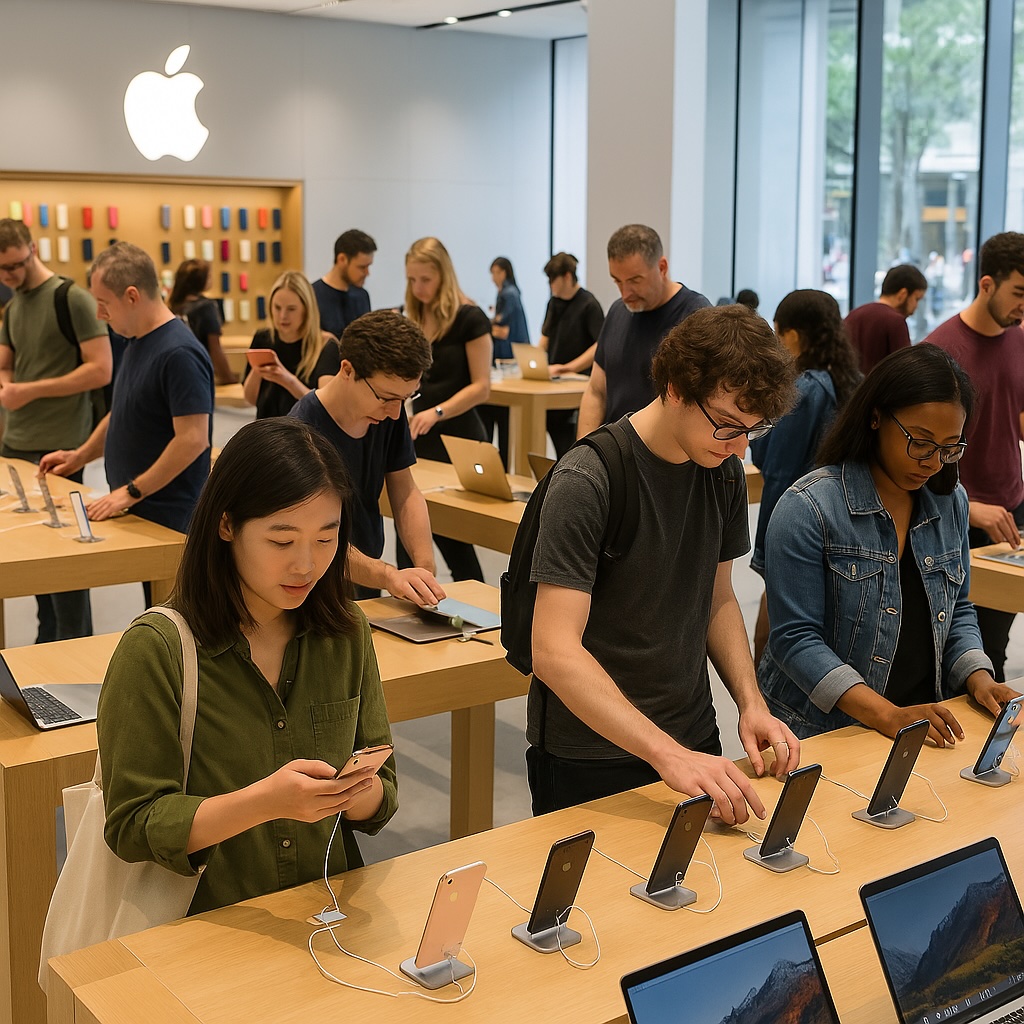Apple, Big Tech Face Tariff Blowback: What Investors Need to Know
The tech sector's uneasy truce with trade policy is unraveling fast. According to Wedbush analyst Dan Ives, the newly implemented 145% tariff on Chinese imports is morphing a Wall Street concern into

The tech sector's uneasy truce with trade policy is unraveling fast. According to Wedbush analyst Dan Ives, the newly implemented 145% tariff on Chinese imports is morphing a Wall Street concern into a Main Street crisis.
“The economic tariff Armageddon unleashed by Trump last week has been the dark black cloud over stocks… and so far it’s been a Wall Street/stock driven event,” Ives wrote Friday. “That is all about to change... for US consumers and businesses”.
With the tariffs now squarely targeting consumer tech, apple finds itself in the eye of the storm. Despite efforts to diversify, over 90% of iPhones are still assembled in China. Ives warns the supply chain pressures could push the price of flagship devices past $2,000 if tariffs remain in place for more than a few weeks.
For Apple and its Big Tech peers, the tariffs have "ripped the hearts and lungs out of the US Big Tech supply chain," he added, describing an industry grappling with halted projects, delayed cloud initiatives, and the prospect of muted earnings.
Apple’s Gamble and Washington's Next Move
The hit to Apple’s bottom line is particularly stark. Angelo Zino of CFRA Research estimates the increased tariffs could add as much as $50 billion to Apple’s cost of goods sold. Although Apple is trying to scale production in India and the U.S., Zino remains skeptical the tech giant will shift costs to consumers—at least not before its fall product launch.
“We expect AAPL to delay passing any tariff costs to consumers until its fall product cycle,” Zino noted, raising the probability of an Apple-specific exemption from 20% to 50% if no broader U.S.-China trade deal is reached.
Zino adds that Apple, with more than $500 billion invested in the U.S., is an unlikely target for sustained tariff pressure. Letting the full brunt of tariffs hit Apple could “disadvantage AAPL against its biggest competitor (Samsung),” which is better positioned with production facilities in Vietnam and other lower-tariff jurisdictions.
Relief Rally or Dead Cat Bounce? Goldman Sachs Weighs In
Markets staged a sharp relief rally Wednesday following President Trump’s decision to pause reciprocal tariffs for all countries except China. But that rally may already be running on fumes. In a research note titled "Too Early for the 'All Clear'", Goldman Sachs analysts Dominic Wilson and Vickie Chang caution that the structural risks remain firmly in place.
“The tariffs that remain in place are substantially higher than anticipated prior to April 2,” the analysts wrote. “Policy uncertainty remains very high and is likely to weigh on consumer and business activity”.
The note emphasized the fragility of market sentiment: despite a near 100 basis point upgrade in GDP growth expectations on Wednesday, Goldman still sees a 45% risk of recession over the next 12 months. “Markets have effectively moved to price something like this baseline view,” the note explained, “but are pricing no discount for elevated recession risk”.
Adding to concerns is the volatility itself. Goldman notes that short-dated equity volatility remains high and could only subside with more clarity on policy or further tariff relief. Until then, they advise investors to “reset downside protection in risk assets”
With consumers now bracing for price hikes and corporations delaying investment decisions, the weeks ahead may prove even more volatile than the markets have priced in. “Investors will need to buckle the seat belt,” Ives warns, calling for patience as earnings season looms. Many tech firms may opt to skip forward guidance altogether, adding to the fog.
Disclaimer: The views in this article are from the original Creator and do not represent the views or position of Hawk Insight. The content of the article is for reference, communication and learning only, and does not constitute investment advice. If it involves copyright issues, please contact us for deletion.